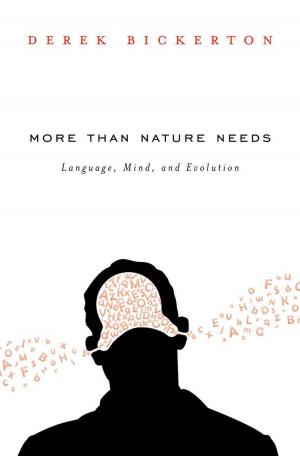Harvard University Press imprint: 1080 books
by David Scott FitzGerald
Language: English
Release Date: April 22, 2014
Language: English
Release Date: April 22, 2014
Culling the Masses questions the view that democracy and racism cannot coexist. Based on records from 22 countries 1790-2010, it offers a history of the rise and fall of racial selection in the Western Hemisphere, showing that democracies were first to select immigrants by race, and undemocratic states first to outlaw discrimination.
by Denis Kozlov
Language: English
Release Date: June 1, 2013
Language: English
Release Date: June 1, 2013
In the “Thaw” following Stalin’s death, probing conversations about the nation’s violent past took place in the literary journal Novyi mir (New World). Readers’ letters reveal that discussion of the Terror was central to intellectual and political life during the USSR’s last decades. Denis Kozlov shows how minds change, even in a closed society.
by Harold Holzer
Language: English
Release Date: March 13, 2012
Language: English
Release Date: March 13, 2012
The Emancipation Proclamation is responsible both for Lincoln’s being hailed as the Great Emancipator and for his being pilloried by those who consider his once-radical effort at emancipation insufficient. Holzer examines the impact of Lincoln’s announcement at the moment of its creation, and then as its meaning has changed over time.
Exposed
Desire and Disobedience in the Digital Age
Language: English
Release Date: November 17, 2015
Exploiting our boundless desire to access everything all the time, digital technology is breaking down whatever boundaries still exist between the state, the market, and the private realm. Bernard Harcourt offers a powerful critique of what he calls the expository society, revealing just how unfree we are becoming and how little we seem to care.
by Hans Christian von Baeyer
Language: English
Release Date: October 3, 2016
Language: English
Release Date: October 3, 2016
Short for Quantum Bayesianism, QBism adapts conventional features of quantum mechanics in light of a revised understanding of probability. Using commonsense language, without the equations or weirdness of conventional quantum theory, Hans Christian von Baeyer clarifies the meaning of quantum mechanics and suggests a new approach to general physics.
by Derek Bickerton
Language: English
Release Date: January 13, 2014
Language: English
Release Date: January 13, 2014
How did humans acquire cognitive capacities far more powerful than any hunting-and-gathering primate needed to survive? Alfred Russel Wallace, co-founder with Darwin of evolutionary theory, set humans outside normal evolution. Darwin thought use of language might have shaped our sophisticated brains,...
by Elizabeth A. Armstrong, Laura T. Hamilton
Language: English
Release Date: April 1, 2013
Language: English
Release Date: April 1, 2013
In an era of skyrocketing tuition and concern over whether college is “worth it,” Paying for the Party is an indispensable contribution to the dialogue assessing the state of American higher education. A powerful exposé of unmet obligations and misplaced priorities, it explains in detail why so many leave college with so little to show for it.
by Corey M. Abramson
Language: English
Release Date: June 9, 2015
Language: English
Release Date: June 9, 2015
Senior citizens face a gauntlet of physical, psychological, and social hurdles. But do disadvantages accumulated over a lifetime make the final years especially difficult for some people? Or does the quality of life among poor and affluent seniors converge? Corey Abramson investigates whether lifelong inequality structures the lives of the elderly.
Trusting What You're Told
How Children Learn from Others
Language: English
Release Date: May 29, 2012
If children were little scientists who learn best through firsthand observations and mini-experiments, how would a child discover that the earth is round—never mind conceive of heaven as a place someone might go after death? Trusting What You’re Told begins by reminding us of a basic truth: Most of what we know we learned from others.
by Siep Stuurman
Language: English
Release Date: February 20, 2017
Language: English
Release Date: February 20, 2017
For much of history, strangers were seen as barbarians, seldom as fellow human beings. The notion of common humanity had to be invented. Drawing on global thinkers, Siep Stuurman traces ideas of equality and difference across continents and civilizations, from antiquity to present-day debates about human rights and the “clash of civilizations.”
On Human Nature
Twenty-Fifth Anniversary Edition, With a New Preface
Language: English
Release Date: November 1, 2012
In his new preface E. O. Wilson reflects on how he came to write this book: how The Insect Societies led him to write Sociobiology, and how the political and religious uproar that engulfed that book persuaded him to write another book that would better explain the relevance of biology to the understanding of human behavior.
The Accidental Mind
How Brain Evolution Has Given Us Love, Memory, Dreams, and God
Language: English
Release Date: November 1, 2012
Linden sets the record straight about the construction of the human brain; rather than the “beautifully-engineered optimized device, the absolute pinnacle of design” portrayed in many dumbed-down text books, pop-science tomes, and education televisions programs, Linden’s organ is a complicated...
by Michael Tomasello
Language: English
Release Date: January 4, 2016
Language: English
Release Date: January 4, 2016
Michael Tomasello offers the most detailed account to date of the evolution of human moral psychology. Based on experimental data comparing great apes and human children, he reconstructs two key evolutionary steps whereby early humans gradually became an ultra-cooperative and, eventually, a moral species capable of acting as a plural agent “we”.
by Ari Berkowitz
Language: English
Release Date: March 14, 2016
Language: English
Release Date: March 14, 2016
From simple reflexes to complex movements, all animal behavior is governed by a nervous system. But what kind of government is it—a dictatorship or a democracy? Ari Berkowitz explains the variety of structures and strategies that control behavior, while providing an overview of thought-provoking debates and cutting-edge research.













